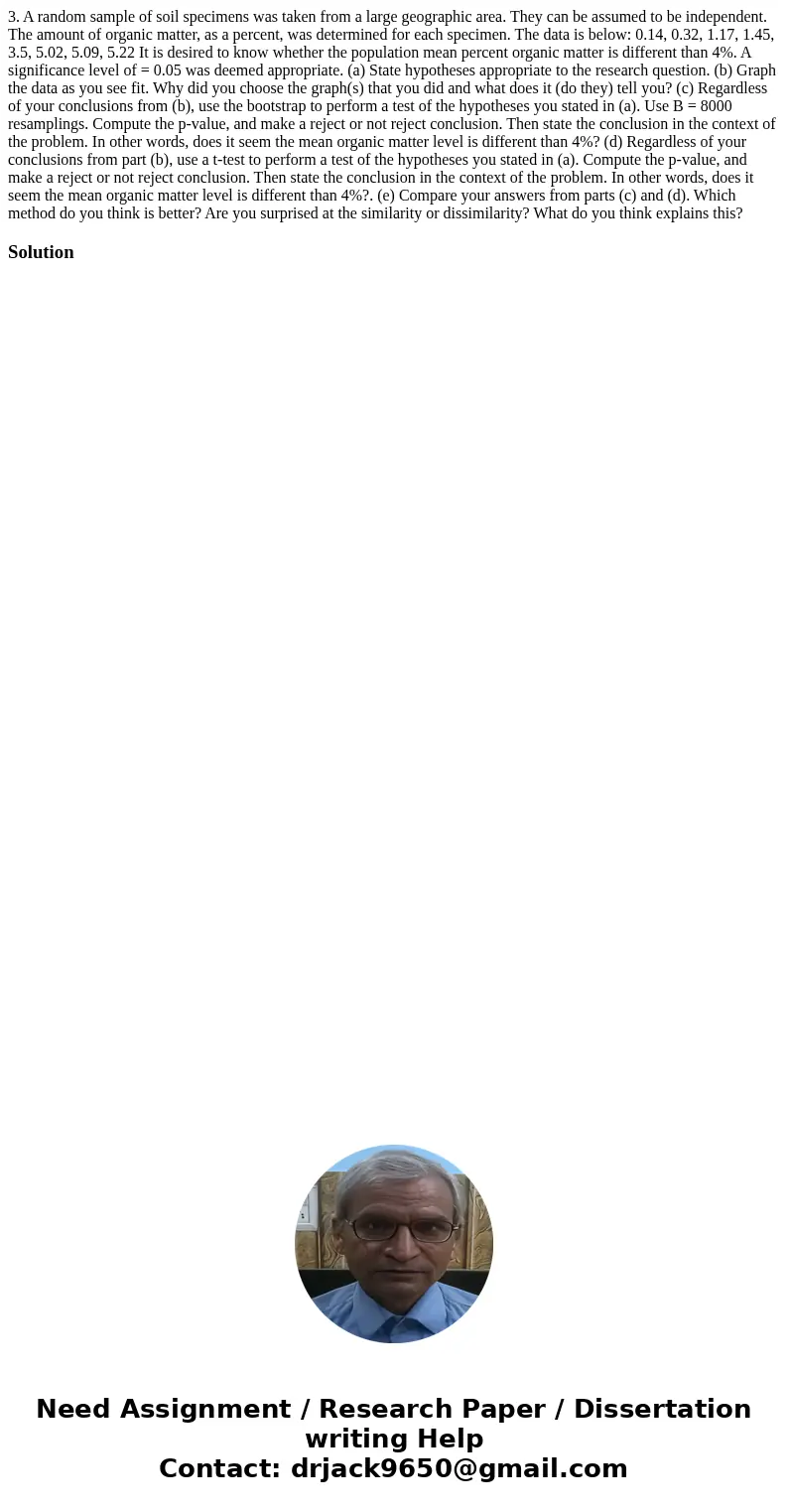3 A random sample of soil specimens was taken from a large g
3. A random sample of soil specimens was taken from a large geographic area. They can be assumed to be independent. The amount of organic matter, as a percent, was determined for each specimen. The data is below: 0.14, 0.32, 1.17, 1.45, 3.5, 5.02, 5.09, 5.22 It is desired to know whether the population mean percent organic matter is different than 4%. A significance level of = 0.05 was deemed appropriate. (a) State hypotheses appropriate to the research question. (b) Graph the data as you see fit. Why did you choose the graph(s) that you did and what does it (do they) tell you? (c) Regardless of your conclusions from (b), use the bootstrap to perform a test of the hypotheses you stated in (a). Use B = 8000 resamplings. Compute the p-value, and make a reject or not reject conclusion. Then state the conclusion in the context of the problem. In other words, does it seem the mean organic matter level is different than 4%? (d) Regardless of your conclusions from part (b), use a t-test to perform a test of the hypotheses you stated in (a). Compute the p-value, and make a reject or not reject conclusion. Then state the conclusion in the context of the problem. In other words, does it seem the mean organic matter level is different than 4%?. (e) Compare your answers from parts (c) and (d). Which method do you think is better? Are you surprised at the similarity or dissimilarity? What do you think explains this?
Solution

 Homework Sourse
Homework Sourse